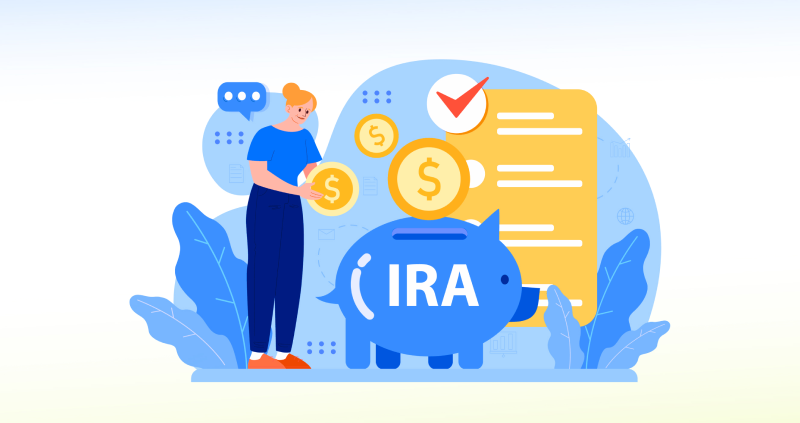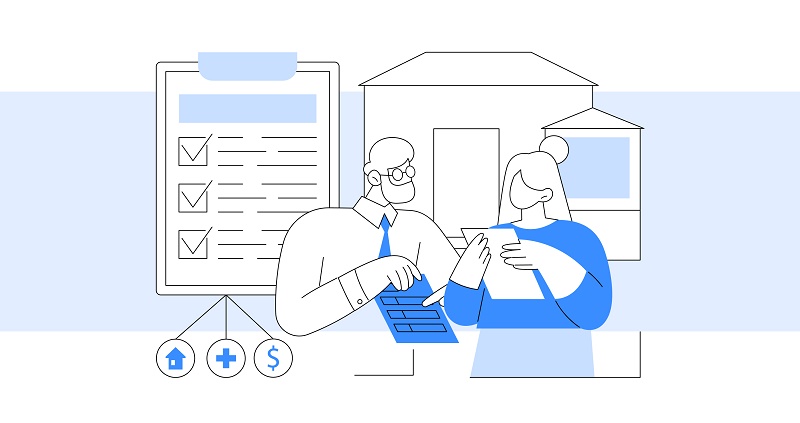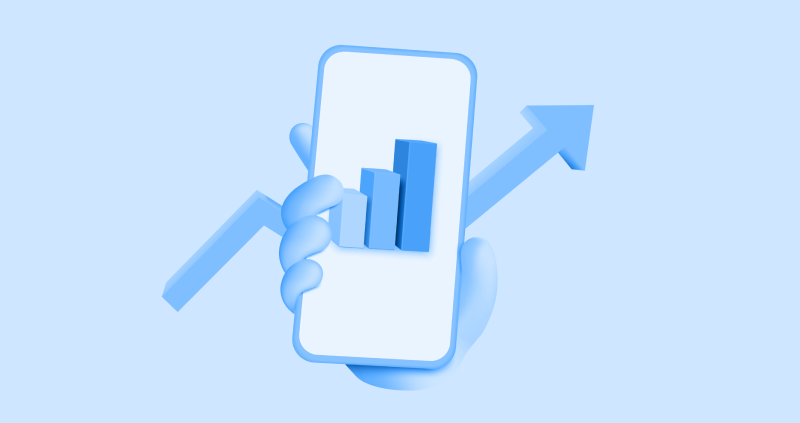How to achieve financial freedom: A practical guide for beginners
Learn the steps to build lasting wealth and gain true financial independence
Home > Retirement > Financial Freedom
What is financial freedom: It’s about covering your needs without money stress, so you can make life decisions based on what matters to you, not just what you can afford
Ways to achieve financial freedom: There is no best way to become financially independent. However, from budgeting and saving to investing and paying off debt, different strategies can help you build lasting financial freedom
Financial freedom looks different for everyone: Whether it means early retirement or simply not living paycheck to paycheck, financial freedom means having the freedom to live life on your terms

What is financial freedom?
Financial freedom means having full control over your finances, so you can make life decisions without constant money stress. It’s about reaching a point where your income, savings, and investments cover your needs and goals. To achieve financial freedom, you need time, discipline, and a clear plan. This means budgeting wisely, paying off debt, setting financial goals, and investing for the future.
The best way to financial freedom looks different for everyone, but the goal is the same: gaining independence from financial pressure. Whether you want to retire early, start your own business, or simply stop living paycheck to paycheck, financial freedom gives you the flexibility to choose the life you want.
Importance of financial freedom
Achieving financial freedom isn’t just about money. It’s also about peace of mind, flexibility, and long-term security. When you understand the ways to get financial freedom, you’re in a better position to build a life based on your values rather than your financial limitations.
Here’s why financial freedom matters:
- Reduces financial stress: You’re better equipped to handle unexpected expenses or emergencies.
- Supports long-term goals: Whether it’s homeownership, travel, or early retirement, your money works for you.
- Improves decision-making: You're free to make career, lifestyle, and personal choices without being limited by money concerns.
- Protects against economic shifts: A solid financial foundation can help you cope in times of inflation, job loss, or market downturns.
- Creates generational impact: Financial independence can help you support family, build wealth, and leave a legacy.
How long does it take to reach financial freedom?
There’s no fixed timeline to reach financial freedom. It depends on your income, expenses, debt level, savings rate, and lifestyle choices. For some, it may take decades and for others, a few focused years. What matters most is consistency. By following the right steps to financial freedom, anyone can make steady progress toward long-term financial independence.
A step-by-step guide to financial freedom
There’s no shortcut to financial freedom, but there is a clear path. By breaking it down into practical, manageable steps, you can move from financial stress to financial independence, no matter your starting point. This section outlines important steps to financial freedom, such as building the habits, mindset, and systems that make lasting change possible.
Whether you’re just getting started or looking to improve your strategy, these are effective ways to become financially independent and gain control over your money for the long term.
1. Manage your budget
A solid budget can form the foundation of financial freedom. It helps you understand where your money goes, where you can cut back, and how much you can realistically save or invest each month. Without a budget, it's nearly impossible to take control of your spending or plan for future goals.
Knowing how to budget money is easier than you might think. Start by tracking your monthly income and all expenses, including fixed costs like rent and flexible spending like dining out. Then, build a plan that prioritizes savings, debt repayment, and long-term investing. Budgeting isn’t about restriction, but about creating room to grow.
2. Set financial goals
Setting clear, personal financial goals gives your money a purpose. Without direction, it’s easy to spend aimlessly or save without real progress. Defining short-term and long-term goals helps you stay focused and measure your success along the way.
Your financial goals should also support your life goals, whether that’s owning a home, starting a family, changing careers, or enjoying early retirement. When your financial decisions align with what matters most to you, it becomes easier to stay motivated and on track.
From starting an emergency fund to investing for the future, your goals are key to helping you achieve financial freedom. Make sure they’re specific, realistic, and time-bound, and revisit them often as your circumstances evolve over time.
3. Pay your debts
Debt can be one of the biggest obstacles on the path to financial freedom. Carrying too much debt limits your cash flow, increases long-term costs, and makes it harder to build savings or invest. This means reducing or eliminating debt is an important step toward lasting financial independence.
Here are the most common types of debt to focus on:
- Credit card debt: This is often the highest-interest debt and a major drain on your budget if left unpaid.
- Student loans: Whether federal or private, paying these off can open up more room for savings and investing.
- Auto loans: While often necessary, these are depreciating assets that can weigh down your monthly finances.
- Personal loans: They are used for anything from home repairs to medical bills. You could prioritize them based on interest rates.
- Medical debt: They are often unplanned but common. You can work with providers and check if it’s possible to set up manageable payment plans.
- Buy now, pay later plans: These may seem harmless but can add up quickly if not tracked or paid on time.
- Mortgage debt: Although considered good debt, it’s still important to manage it wisely within your overall plan.
4. Save money
To achieve financial freedom, saving needs to become a consistent habit, not just something you do when there’s money left over. It starts with building financial security and grows into planning for future goals. A first step is creating an emergency fund, enough to cover at least three to six months of basic expenses. This gives you a financial cushion when unexpected expenses or disruptions occur, such as a job loss or sudden medical bill.
But saving isn’t only for emergencies. Setting aside money for planned expenses such as a vacation, home upgrades, or education helps you stay on track and avoid going into debt. Using automatic savings tools can make this process easier by moving money directly into your account without requiring monthly effort.
Here are a few strategies that support long-term saving:
- Start a small daily or weekly savings challenge
- Use a high-yield savings account to grow your funds faster
- Cancel unused subscriptions and redirect those dollars
- Set up separate accounts for specific savings goals
5. Make investments
Once you’ve built a strong foundation with budgeting and saving, you might be interested to explore investing for your financial freedom. You don’t need to be an expert, just understanding the basics can help your money grow over time.
Many people consider investing a potential way to build financial independence, as it may help their money grow over time instead of sitting idle. Even small, consistent contributions can compound and support long-term goals. However, investing always carries risk, and returns are never guaranteed. It’s important to choose a strategy that aligns with individual goals and risk tolerance and maybe to consult a financial professional before making any major investment decisions.
Here are a few common starting points:
- Stock market: Consider index funds or ETFs for simple, diversified exposure
- Retirement accounts: 401(k)s and IRAs offer long-term growth and tax advantages
- Real estate: Property ownership can generate rental income and build wealth
- High-yield CDs: Potentially a lower-risk option compared to investing
- Robo-advisors: Automated platforms that invest based on your risk profile
6. Check your credit score
Your credit score plays a bigger role in your financial journey than many people realize. It affects your ability to borrow money, the interest rates you’re offered, and even your eligibility for certain services. While it’s not the only factor that matters, a good credit score supports your way to financial freedom.
A strong score can help you qualify for better loan terms and save on interest, freeing up more money for saving and investing. Monitoring your credit regularly also helps you catch errors and stay aware of what’s affecting your score.
How to keep your credit score in good shape:
- Track your score through your bank, credit card provider, or a trusted credit monitoring service.
- Pay bills on time and keep your credit utilization low.
- Avoid opening too many new accounts in a short period.
- Check your credit report regularly to stay informed and spot issues early.
7. Live below your means
One of the most effective steps to financial freedom is learning to live below your means. This simply means spending less than you earn and consistently saving or investing the difference. It doesn’t require extreme frugality, but it does mean making intentional choices about your expenses. Living below your means creates room in your budget to build an emergency fund, pay down debt, and invest for the future which are all important factors for financial independence.
8. Take care of your health
Good health is closely tied to your ability to achieve financial freedom. In the United States, unexpected medical bills are a leading cause of debt.¹ Taking care of your physical and mental well-being can help reduce long-term healthcare costs, prevent income loss due to illness, and protect your emergency fund. Prioritizing preventive care, staying insured, and making healthy lifestyle choices can lead to fewer expenses over time.
9. Learn how to negotiate
In the United States, negotiation isn’t just accepted, in some cases it’s often expected. Learning to negotiate is a valuable life skill that can directly support your way to financial freedom. From asking for a raise to lowering your cable bill, confident negotiation can increase your income and reduce monthly expenses. The ability to speak up, ask questions, and advocate for better terms can help you achieve financial freedom faster.
Here are a few everyday opportunities to put this skill to use:
- Salary or job offers: Don’t be afraid to ask for a better salary. It’s not rude and often expected.
- Medical bills: You can often negotiate payment plans or discounts.
- Utilities and subscriptions: Providers may offer lower rates to keep your business.
- Big purchases: Cars, furniture, and even services may have room for negotiation.
10. Stay educated
Staying educated is one of the most powerful ways to achieve financial freedom and maintain it for the long term. The financial world is always changing, from interest rates and tax rules to new saving and investing strategies. The more you learn, the better equipped you are to make informed decisions about your money and future.
Education doesn’t have to be complicated. It can be as simple as reading trusted articles, listening to personal finance podcasts, or keeping up with changes that affect your budget, income, or goals. Staying informed helps you avoid common mistakes, adjust your plan when needed, and build the confidence to take control of your financial life. If you’re looking for a place to start, Raisin offers a variety of guides to savings, investing, or retirement.
How do I know if I have achieved financial freedom?
You’ve likely achieved financial freedom when your passive income such as investments, savings, or rental income consistently covers your essential living expenses without relying on a traditional paycheck. You’re free to make life decisions based on what you value, not just what you can afford. What matters most is that you’ve built enough financial security to support your lifestyle, manage risks, and pursue your goals with confidence.
How the right savings accounts powered by Raisin can help achieve financial freedom
You've taken the first steps toward financial freedom, from budgeting and saving to investing and long-term planning. But staying financially independent also means making smart choices about where you keep your money. The right savings strategy should support both your short-term needs and long-term goals.
With Raisin, you can access a wide range of high-yield savings products. It’s a simple way to grow your savings and maintain the flexibility you’ve worked hard to build. Start optimizing your savings strategy today and take another step toward lasting financial independence.
The above article is intended to provide generalized financial information designed to educate a broad segment of the public; it does not give personalized tax, investment, legal, or other business and professional advice. Before taking any action, you should always seek the assistance of a professional who knows your particular situation for advice on taxes, your investments, the law, or any other business and professional matters that affect you and/or your business.
Sources
¹https://www.healthsystemtracker.org/brief/the-burden-of-medical-debt-in-the-united-states/


